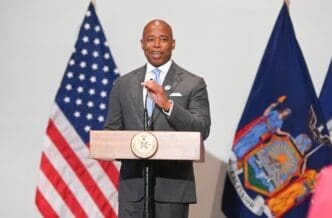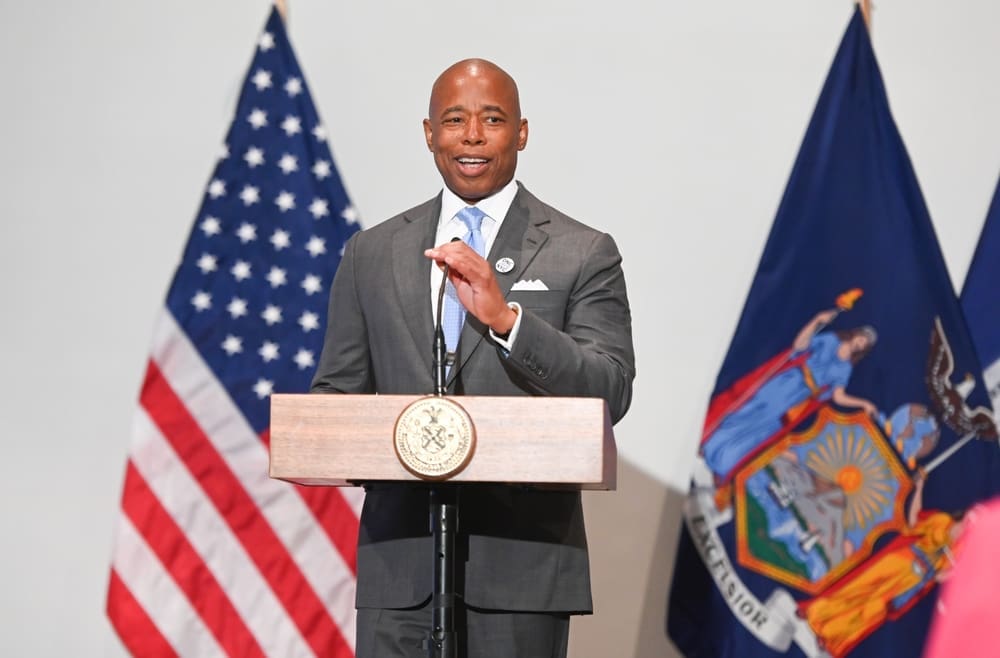New York City’s political landscape faces a significant shift as Mayor Eric Adams announces his decision to withdraw from the Democratic primary and pursue reelection as an independent candidate. This move follows the resolution of a federal bribery case that impaired his campaign efforts.
In a video statement, Adams expressed that the protracted nature of the criminal case, coupled with what he described as unfounded allegations, hindered his ability to actively campaign. He emphasized the need for leadership that is independent of extreme political influences, aligning with the centrist values shared by the majority of New Yorkers.
Speculation had been rife regarding Adams’ potential participation in the Democratic primary, which had already attracted competition from notable figures, including former New York Governor Andrew Cuomo. By opting out of the primary, Adams positions himself directly for the November general election, allowing more time to focus on his campaign without the burden of the criminal charges.
However, this decision may distance Adams from the city’s predominantly Democratic voter base and party infrastructure. The mayor has faced challenges in fundraising, exacerbated by the denial of public matching funds due to concerns about his campaign’s financial records.
The dismissal of Adams’ corruption case by a federal judge on Wednesday concluded a legal ordeal that had cast a shadow over his political career. The allegations, originating under President Joe Biden’s administration, accused Adams of accepting illegal contributions in exchange for assisting in the diplomatic interests of Turkey. Although Adams pleaded not guilty and maintained his innocence, the charges were eventually dropped by President Donald Trump’s Justice Department, allowing him to support the administration’s immigration policies.
This unusual development sparked controversy and skepticism about Adams’ political independence, with critics raising concerns about possible influences from the Trump administration. In dismissing the case, the federal judge barred the possibility of refiling charges, noting that it could create a perception of political coercion.
Adams acknowledged the impact of the case on public trust, admitting to mistakes in his associations but firmly denying any wrongdoing. Despite these challenges, he reiterated his commitment to serving as a centrist Democrat, distancing himself from both far-left and far-right extremes.
The Evolving Landscape
- The shift to an independent campaign allows Adams to focus on addressing the concerns of a broader constituency, potentially bridging divides between political extremes.
- Residents may see changes in campaign dynamics, with emphasis on policies that appeal to centrist voters, influencing discourse in the general election.
- The decision could impact voter turnout in the Democratic primary, altering the competitive landscape as other candidates vie for support.
- The controversy surrounding the case and its dismissal may lead to increased scrutiny of political alliances and campaign practices in New York City.
- Adams’ past affiliations and political evolution highlight the fluidity of party alignments, potentially leading to more diverse candidate offerings in future elections.












